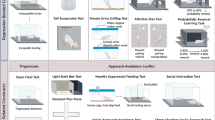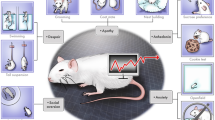Abstract.
Rationale: The C57BL/6 is one of the most widely used mouse strains in behavioral, pharmacological, and genetic research but little is known about their response on tests for antidepressant drugs. Objectives: The behavior of C57BL/6 mice, and mice from other strains, was examined in the tail suspension test (TST), a common behavioral test used for the screening of antidepressant compounds. Methods: C57BL/6J mice from the Jackson Laboratory, C57BL/6N mice from Harlan, A/J, 129-SV-ter and DBA/2 mice were tested under baseline conditions in the TST. Results: The majority of the C57BL/6 mice from the Jackson Laboratory tested in this paradigm (70%) climbed up their tails during the 6-min test session. C57BL/6 mice obtained from Harlan (35%) also demonstrated this climbing behavior, suggesting that it is not specific to mice from a particular supplier. Other strains (A/J 18%), 129-SV-ter (0%) and DBA/2 (0%) mice) showed less propensity for tail climbing. Conclusions: The occurrence of this behavior is an important consideration when testing antidepressant drugs or the effects of stress using the TST with inbred mouse strains, especially those from the C57BL/6 strain.
Similar content being viewed by others
Author information
Authors and Affiliations
Additional information
Electronic Publication
Rights and permissions
About this article
Cite this article
Mayorga, A., Lucki, I. Limitations on the use of the C57BL/6 mouse in the tail suspension test. Psychopharmacology 155, 110–112 (2001). https://doi.org/10.1007/s002130100687
Received:
Accepted:
Published:
Issue Date:
DOI: https://doi.org/10.1007/s002130100687




